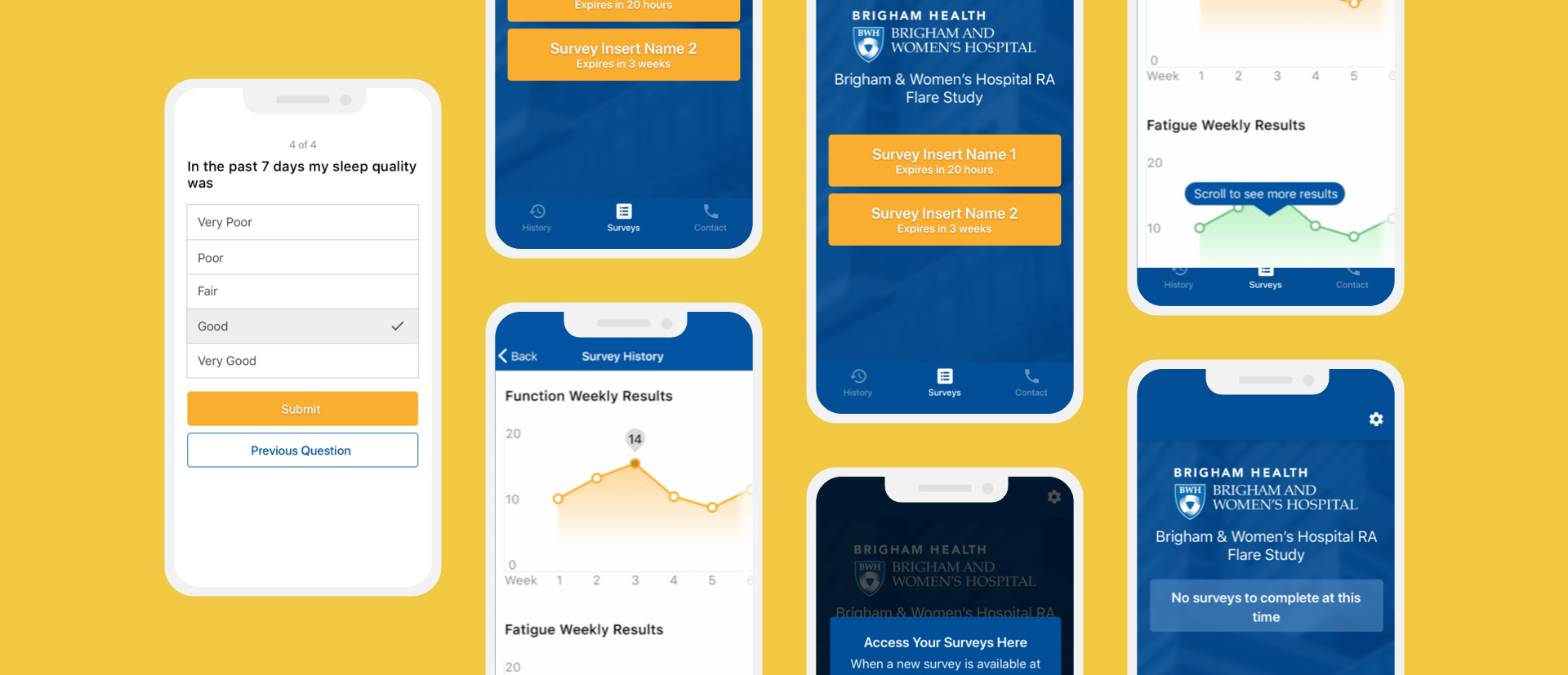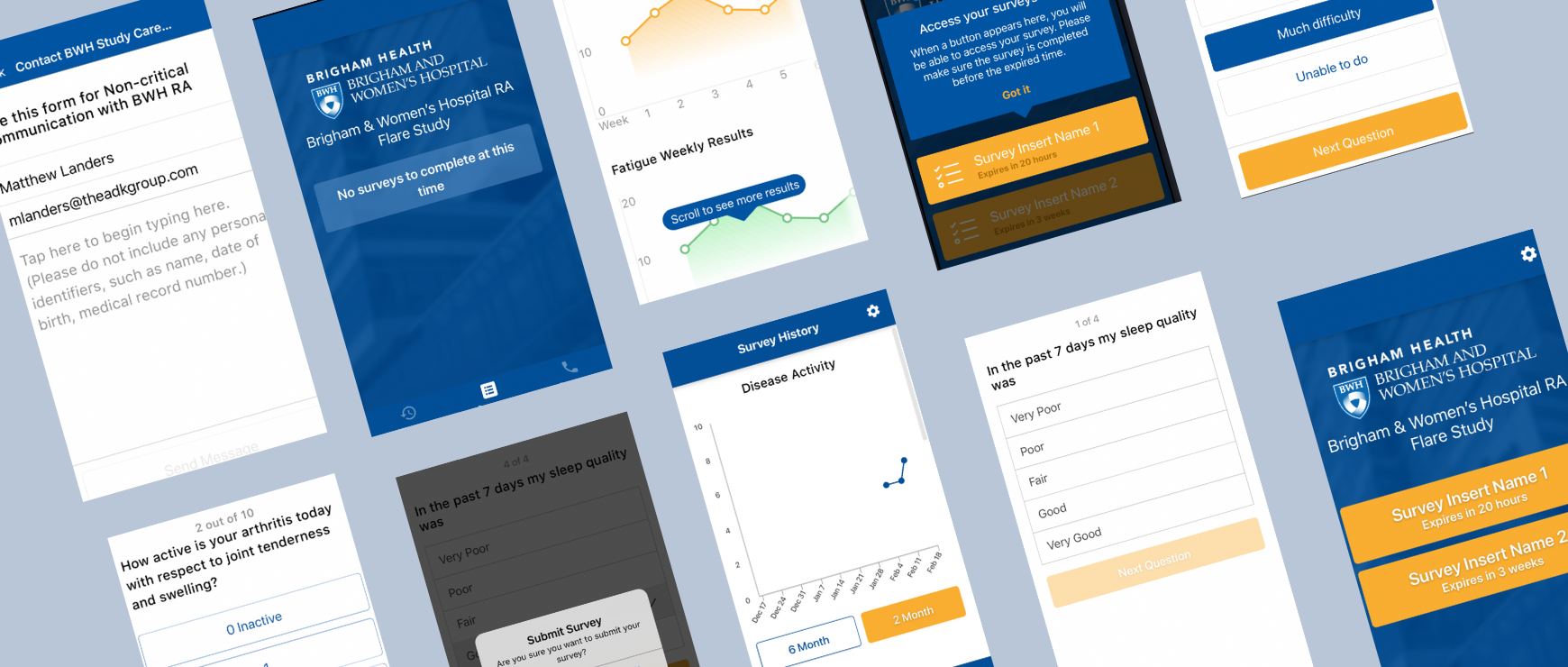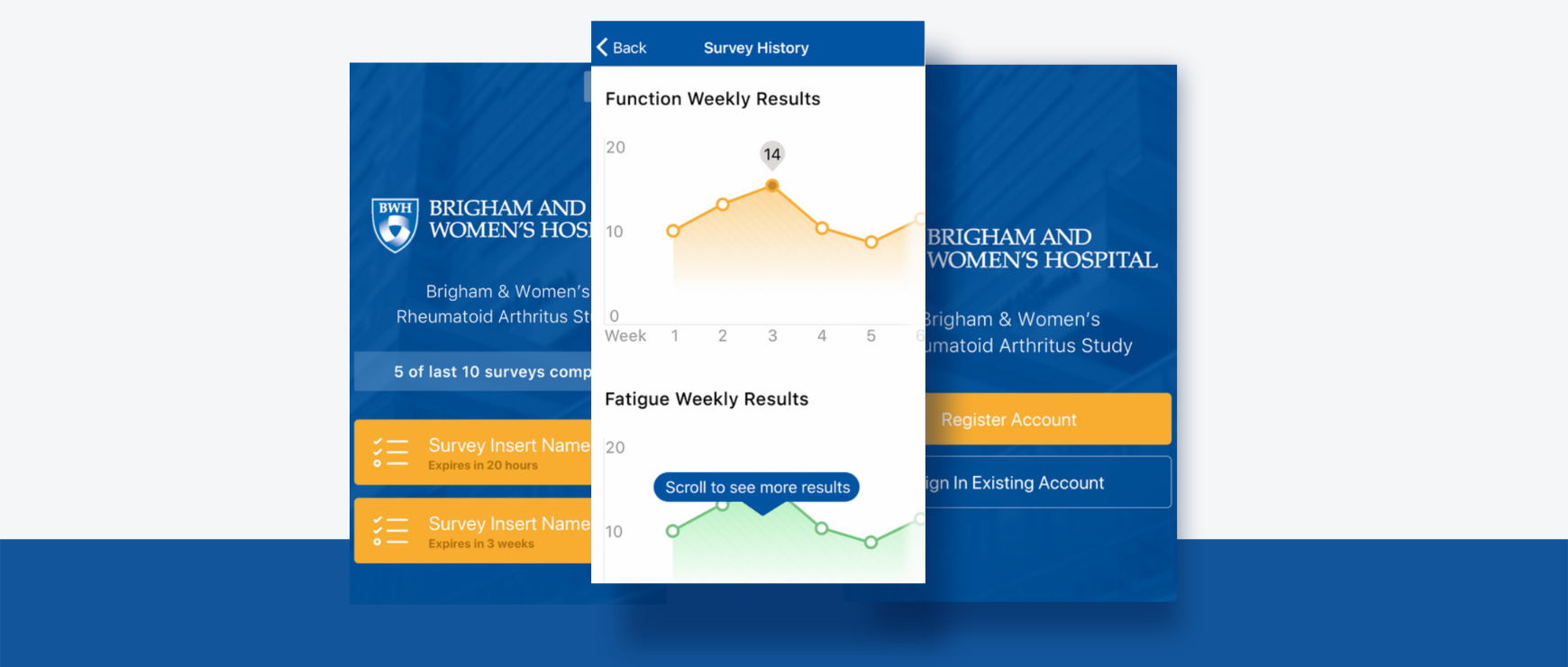The Solution
The BWH and ADK teams already had clinically valid survey questions and answers that could be used as the foundation. The original RA Flare App provided a means to go beyond the variance of descriptive language by patients in written diaries or through in-office recollection. The application’s clinically designed, highly specific survey questions and answer choices met standardized clinical protocol understanding.
Democratizing Customizable Digital Health App Use
ADK suggested using the latest iteration of their mHealth App Kit Platform. After all, the early work on the original RA app had contributed to the evolution of the mHeath App kit Platform. This would be the best way to meet the modern UI/UX needs, limited budget, and original scope of the app without fully rebuilding it. The mHealth App Kit is a true out-of-the-box app platform that:
- Has core clinical research features pre-built
- Follows strict HIPAA and regulatory standards
- Could easily be tailored to the RA-specific survey, scheduling, and feature functionality needs of the BWH RA team
- Includes future interoperability features like FIHR compatibility
- Would assure continual updates since the new app would live on the always- updated mHealth App Kit platform
The BWH and ADK team partners agreed the best approach would be to port over the framework of the original app and recreate it on the mHealth App Kit Platform. This would be the most viable way to achieve the educational and experiential goals for a broad group of RA clinicians and their patients.
Building on the Past to Innovate in the Present
The ADK and BWH teams had the benefit of a longstanding collaborative partnership that was based on trust, innovative thinking and mutually clear goals. This type of foundational teamwork was essential to the continued improvement of the application. By starting with the latest iteration of the mHealth App Kit Platform as their foundation, the long-term collaborative journey of BWH and ADK would come full circle. Now the Platform would provide the basis for bringing an adaptable and affordable patient reporting app to BWH, four other health systems, and countless more in the future.
The Process
Once they aligned expectations, ADK developed the clinician dashboard and stood up the core cloud instance for the app using the App Kit platform. They could then replicate the cloud instance for use by each of the other four hospital RA clinics. This would allow each clinic to send app use invites to their RA patients. Each hospital would then have complete data access security and autonomy that met HIPAA security and privacy guidelines.
The RA Flare App underwent user acceptance testing by the partners and stakeholders before instance duplication. This ensured the application met user expectations and could seamlessly interface with the broadest number of smartphones and operating systems.
Creating an Adaptable, Universal RA Application via the mHealth App Kit Platform
The next step was launching the four applications on the app store with the right branded dashboards and credentials so that each clinic can make it accessible for their patients to use. Each hospital will offer the app to its RA patients for six months via the current education program funding round by BWH.
Based on how they use it and the response, they can continue funding their app instance for ongoing use beyond the education experience. Because ADK built the RA Flare App on the mHealth App Kit platform, any hospital can always stand up an instance that is optimized for current security, HIPAA, and UI/UX standards.
In each instance, a graphical dashboard interface helps to improve clinical usability. ADK implemented the change within the RA Flare App to present data in graphical form instead of data tables. They also implemented the change in the core App Kit platform so the GUI would be a part of any future applications built on it. This became part of an ongoing evolution of the mHealth App Kit Platform and the RA Flare App. This perpetually increases the strength, usability and functionality of the RA FLare App and every other application built on the mHealth platform.


